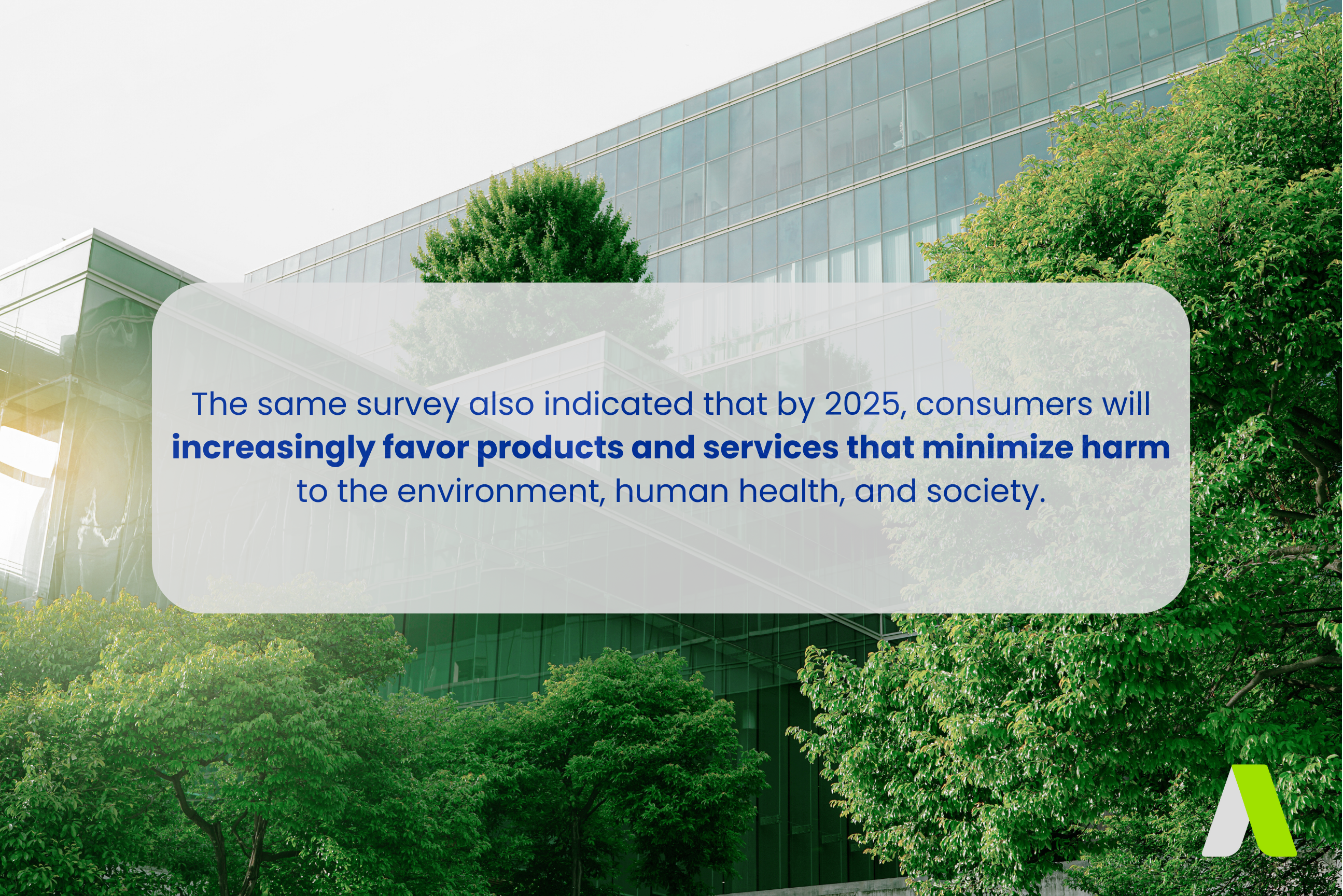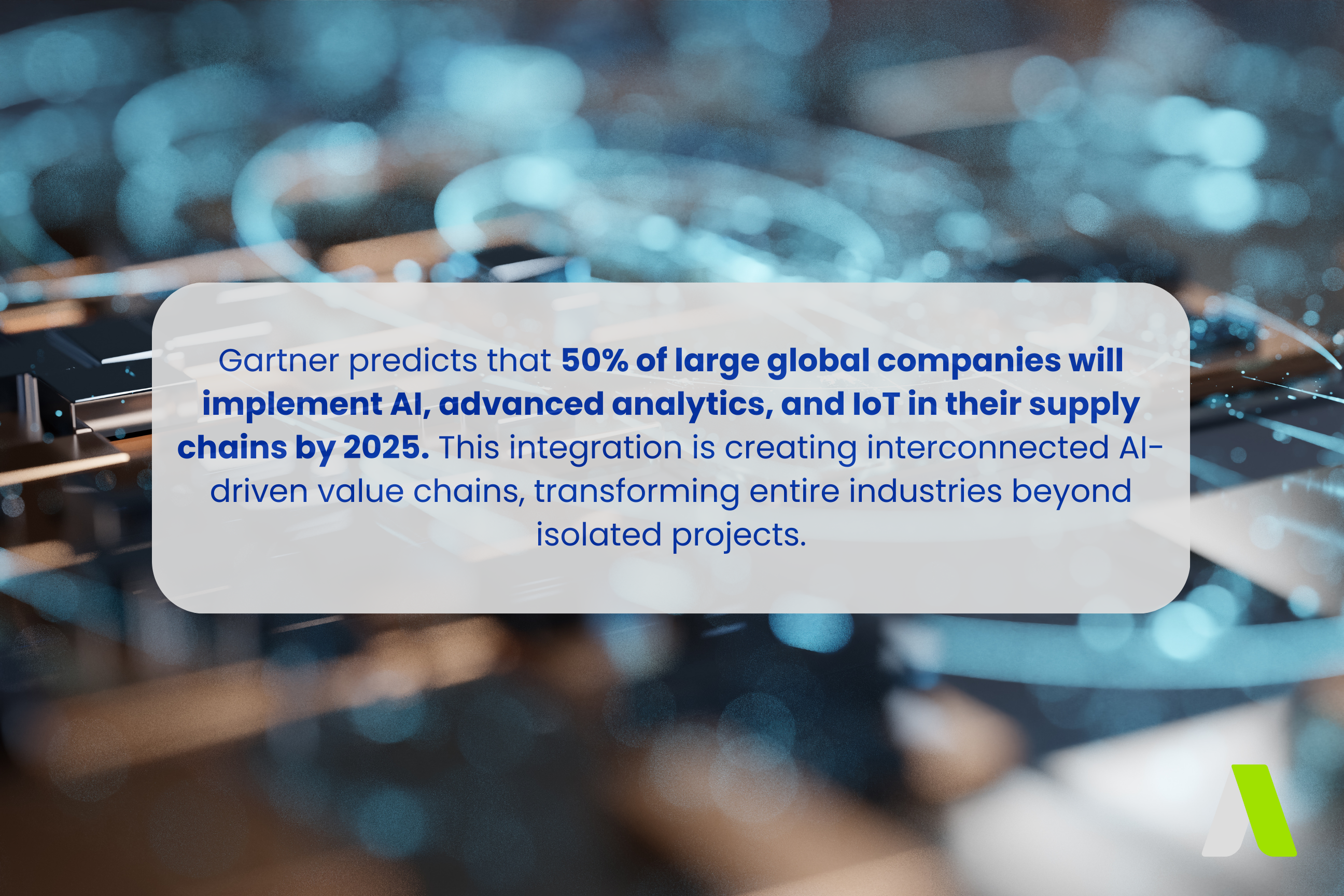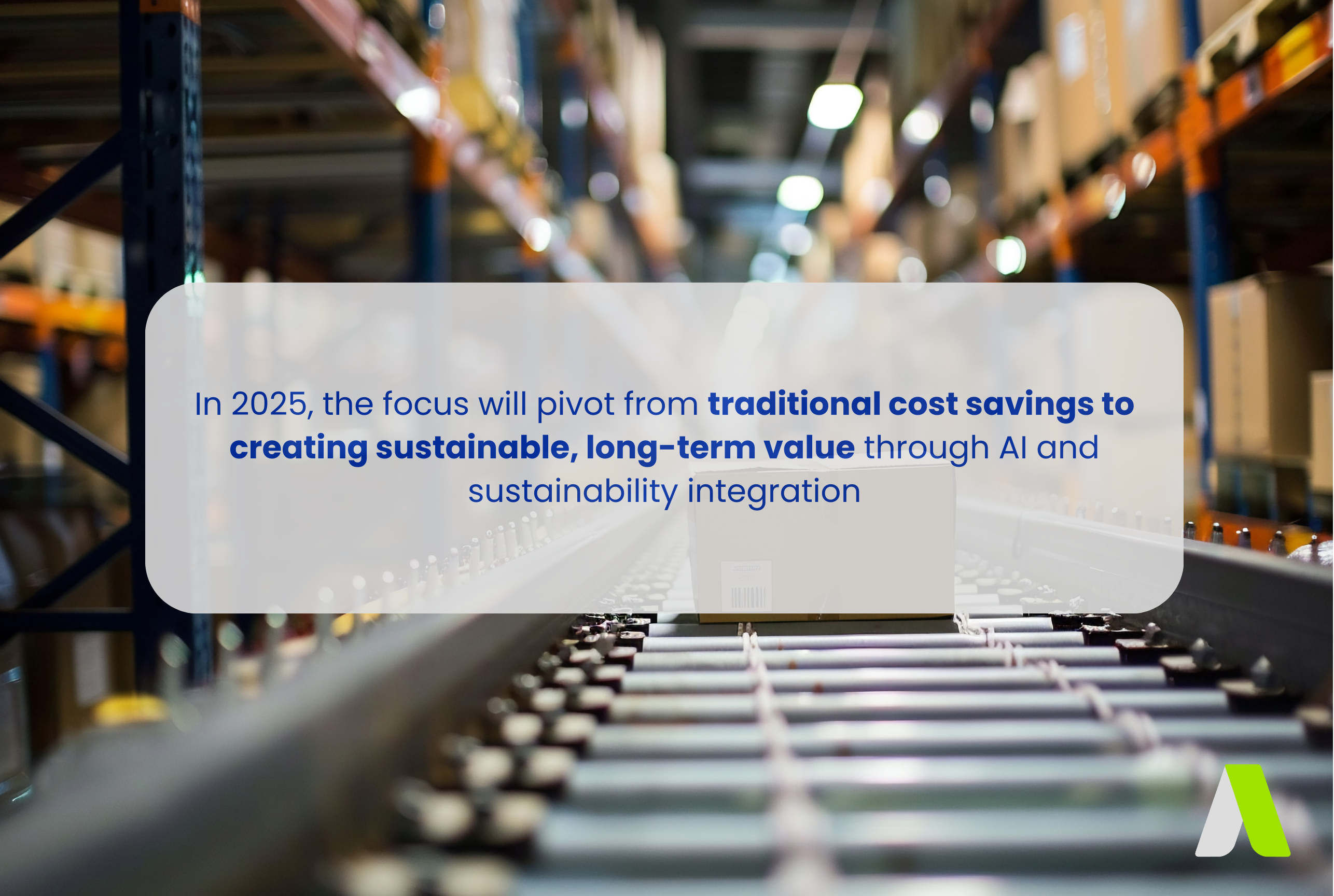As we step into 2025, procurement professionals face a landscape transformed by digital innovation, sustainability demands, and evolving talent dynamics. We’ve compiled key insights from leading industry reports including McKinsey, Gartner, GEP Outlook 2025, EY, and more to bring you the most significant trends shaping procurement’s future.
Trends Overview:
1. ESG and Sustainability as a Business Imperative
2. AI: From Adoption to Adaption
3. The Evolution of Procurement Talent
4. Redefining Value Creation
5. Digital Transformation as a Competitive Edge

Trend 1 – ESG and Sustainability as a Business Imperative
“A recent EY survey found that 90% of global institutional investors now reconsider their investments if companies fail to incorporate ESG criteria into their business models. The same survey also indicated that by 2025, consumers will increasingly favor products and services that minimize harm to the environment, human health, and society.
In 2025, many procurement teams will need to find the right balance between achieving their ESG goals and maintaining profitability during this transition to a more sustainable world.”
“ESG metrics are becoming essential performance indicators in procurement. These metrics track supplier diversity, environmental impact, and social responsibility. By 2025, 80% of companies will include ESG factors in their procurement decisions.
By embracing ESG procurement, companies discover that profit with purpose is not just possible but crucial for long-term success. This approach creates value for stakeholders and contributes to a more sustainable future”.
“Sustainable supply chains cut waste, reduce costs and strengthen reputations through ethical practices – plus there’s correlation between ESG investment and profitability: DP World revealed earlier this year 82% of its report respondents say that embracing sustainability has improved their organisation’s financial performance.”

Trend 2 – AI: From Adoption to Adaption
“Skepticism around AI agents is understandable. Concerns around reliability, control and implementation complexity are valid and require resolution. GEP anticipates that leaders will base how they move forward on these guidelines:
• Reliability: AI agents should demonstrate transparency by offering clear, data-backed reasoning for their recommendations and decisions.
• Human-in-the-loop Oversight: These agents are designed to support human expertise, not replace it. They act as collaborators, allowing teams to focus on strategic tasks.
• Limit Complexity and Build Gradually: Starting small with a pilot approach allows teams to experience incremental benefits before making a larger-scale commitment.”
“Gartner predicts that 50% of large global companies will implement AI, advanced analytics, and IoT in their supply chains by 2025. This integration is creating interconnected AI-driven value chains, transforming entire industries beyond isolated projects.
As we progress in 2025, the focus is shifting from siloed solutions to end-to-end business applications. This transition is creating new efficiencies and insights, driving procurement from a cost center to a value creator.”
“Generative AI (Gen AI): From copilots to reasoning AI agents. Autonomous intelligent systems are becoming more prevalent in performing certain tasks. These AI agents are capable of learning and adapting to new situations, making them valuable assets in various industries, from customer service to healthcare.
In 2025, these advancements will enable new AI ecosystems across industries, elevating efficiency and innovation to new heights.”

Trend 3 – The Evolution of Procurement Talent
“Procurement has long been viewed as a traditional field and often lacks visibility, making it less attractive to Gen Z compared to more dynamic sectors like tech, which is currently booming. As Gen Z leans towards tech roles or blue-collar jobs, procurement teams may struggle to bring in the fresh talent needed to drive digital transformation and innovation.
Therefore, businesses should prioritize sustainability in their procurement processes to attract younger generations, who are more likely to engage with organizations that value social and environmental responsibility.”
“According to the Chartered Institute of Procurement & Supply (CIPS), only 49% of professionals actively chose procurement as a career last year, highlighting the struggle to engage new talent. With Baby Boomers retiring and Gen Z not yet filling entry-level roles, competition for talent is fierce.
Gen Z workers, who prioritize flexibility and dynamic career pathways, are digital natives eager to adopt new technologies.”
“According to a 2024 McKinsey report, access to talent is a key priority for procurement leaders. Of course, we already know that most face shortages in traditional procurement skills. Not only that, but many lack the technical and analytical capabilities needed to deploy and run advanced digital technologies.
Therefore, in 2025, successful procurement leaders will focus on creating environments that empower teams, drive innovation, and align individual growth with organisational goals to attract and retain the best talent.”

Trend 4 – Redefining Value Creation
“Procurement teams are stepping into a transformative role, no longer just cost-cutters but key drivers of strategic value. In 2025, the focus will pivot from traditional cost savings to creating sustainable, long-term value through AI and sustainability integration.
‘AI-enabled insights can improve operational efficiency while highlighting the inherent value of human expertise,’ asserts Melanie Nuce-Hilton, SVP of Community Engagement at GS1 US.”
“In 2025, business value in procurement and supply chain management is no longer defined solely by cost. The rise of new pressures — resilience, sustainability, risk management and compliance — means the value proposition has shifted.
The question is not whether to adapt, but how to integrate these dimensions into operations and strategy.”

Trend 5 – Digital Transformation as a Competitive Edge
“Cloud procurement solutions offer scalability and real-time collaboration. They enable quick responses to market shifts and cut costs. By 2025, these systems will be the norm, allowing teams to access data and tools anytime, anywhere.
System integration is vital for a comprehensive procurement ecosystem. Seamless integration with ERP and CRM systems improves coordination and data flow. This integration is crucial for realizing digital transformation’s full potential.”
“A report by Gartner highlights the need for Chief Procurement Officers (CPOs) to prepare for the significant impact digitalization will have on procurement operations and staffing.
The report also indicates that AI-based solutions are increasingly capable of handling tasks traditionally managed by sourcing professionals.”
These trends indicate that 2025 is the year for procurement to not just adapt, but to thrive. Are you equipped with the right tools to lead the way? ADAM’s procure-to-pay and vendor management solution is here to support your digital transformation journey. Learn more about how we’re helping organizations unlock their potential.
Stay updated on insights, trends, and updates geared for the procurement community delivered to your inbox.
Up next
See ADAM in action.
Get started and our friendly team will take care of the rest.
Explore how ADAM can transform your vendor management strategy today.




